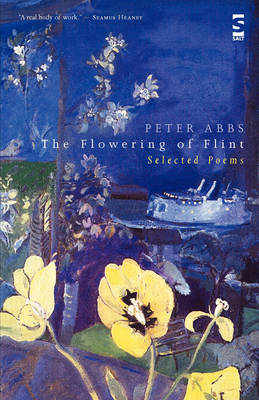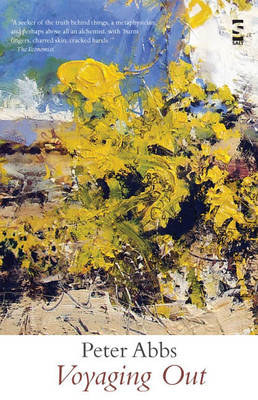Salt Modern Poets
3 total works
This is the seventh volume of Peter Abbs' poetry. Dana Gioia, the American poet and critic, described Peter Abbs as `the rarest of writers - a philosophical poet with a genuine lyrical gift'. The poems gathered here continue to range broadly with a philosophical eye. They include a new group of autobiographical poems, some elegant love poems, and a powerful and disturbing sequence on the breakdown and madness of Nietzsche. The final sequence, Ars Poetica, affirms the power of poetry - of cadence and metaphor, of silence and heteroglossia.
“I believe the work of the poet should be existentially grounded. Being a poet is an interior vocation, not a selected career ...”
“Part of the exacting work of the poet is to annihililate the mind’s protective defences and to silence the seductive voices of what others would like to hear ...”
“Poets are the votaries of language ...”
“Poets have little choice but to live between the menacing hammers, still labouring to utter the multiform truths of our being here and of our being now ... keeping open the creative possibilities of consciousness ...”
These are some of the claims made by Peter Abbs for the contemporary role of the poet. The Flowering of Flint is a selection from work written over three decades in the spirit of his poetics.
The poems range widely. Some are deeply personal issuing from the immediate pressure of experience: the haunting memories of childhood, the harrowing death of parents, the experience of love; some are disturbing eco-poems responding to the current violation of the planet; while others are more impersonal, exploring through the strategies of persona and impersonation, other poets’ experience – apprehensions of the ephemeral, the erotic and the transcendent. The voices of Sappho, Nietzsche and Rilke reverberate, suggesting that only in the resonating echo-chamber of a long tradition can the contemporary poet hope to fulfill the task of imaginative representation and consilience.
Reviewing Peter Abbs’ poetry Kathleen Raine wrote that he had written some of the finest poems of his generation, while the American poet Dana Gioia claimed that he is: `the rarest writer – a philosophical poet with a genuine lyrical gift.’
The Flowering of Flint selected from seven previous volumes closes with a sequence of new poems which elaborate the themes of the whole volume, while pointing, in the last poem, to a new and freer idiom. In his preface Peter Abbs writes: `I would like to think that I am not comfortably settling down but keeping faith with the ineffable spirit of life itself.’
Voyaging Out is the tenth volume of Peter Abbs’ poetry.
His new book divides into two parts. The first half, Peregrinations, offers an anthology of poems which range from the experience of love to memories of childhood, from philosophical reflections on art and poetry to the dramatic re-telling of other lives. There are poems here about Nietzsche as a schoolboy, the public death of Pope John Paul the Second and of the painter Pierre Bonnard’s erotic obsession with Martha.
One of the new themes is travel: an affirmation of the place of voyaging, both further out into the world and further inwards into the distracted soul. In these poems, celebrating a movement south, `peregrine flights’ become metaphors for a deep inner pilgrimage.
The second part, Transformations, offers three sequences from three great poets in the tradition: Rumi, Dante and Rilke. These poems are not literal translations but work in the manner of metamorphoses.
Transformations is a new departure in the poet’s work. The aim is to convert the original poems into contemporary English and, in the case of the Dante sequence, into contemporary political and ecological contexts. Their purpose is to keep faith with the encompassing spirit of these seminal writers, to bring them forcibly into the modern imagination and, in so doing, to keep alive a conversation with the past.
It’s hard for us to grasp transcendence –
even Orpheus shrinks from the hour
when he moves swiftly beyond us.
Yet when his hand slips from the familiar lyre
there’s no subterfuge and nothing’s superfluous.
Imagination vaults to its freedom.


